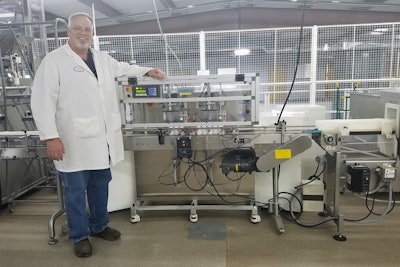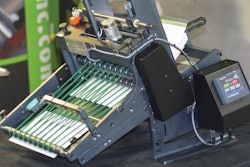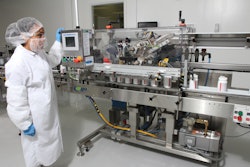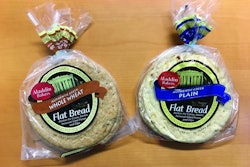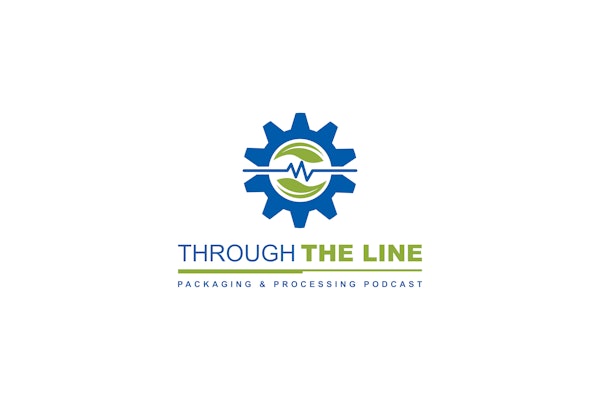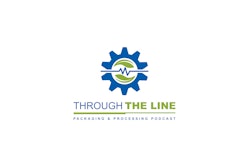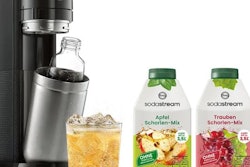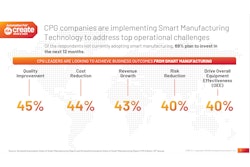For manufacturers and packagers of either pharmaceuticals and nutraceuticals, the need to maximize machinery productivity and manage costs, all while addressing rising consumer product demand, is a constant challenge.
That was the situation for Lifeplus Intl., a Batesville, AR-based producer of nutritional supplements Although increased consumer demand is a positive, Lifeplus has found that meeting those needs isn’t always easy. The company’s sales were boosted as the general supplement market boomed. Lifeplus’s sales continued to move northward with the launch of Daily BioBasicsTM nutritional drinks, TVM Plus multivitamin and mineral supplement, and Lifeplus Joint Formula.
All products are manufactured and packaged at the company’s Batesville headquarters facility, yet most orders are shipped to customers in Europe. “The Europeans pay a lot of attention to quality and nutrient bioavailability whereas many Americans look for the lowest cost per pill,” explains David Burrus, Plant Manager at Lifeplus. “We were usually too busy trying to get ahead of incoming orders to focus on educating the American market about supplement quality.”
Cottoning ‘bottleneck’
The company’s tablet filling line accommodates bottles ranging in size from 120 cc to 300 cc. It is flexible as well, with product changeovers required as many as four times a day. Those changeovers must be done with minimal downtime.
The line’s former cotton inserter was a constant headache, according to Burrus. The machine relied on a series of knives to cut the cotton from a roll into individual pieces, a design that required frequent stoppages for sharpening. It also created a constant safety hazard for the maintenance team. Each changeover required manual machine realignment through a trial-and-error process.
Particularly vexing was that the cotton often rose up into the neck of the bottle as bottles conveyed to the downstream capper, preventing the lid from sealing properly and sending considerable product to the reject bin.
Despite the cotton inserter's shortcomings, it wasn't until the Lifeplus team saw an automated cotton inserting machine at a packaging trade show that appeared able to solve many of its production problems that it realized buying the new machine was necessary.
Cottoner benefits
Called the PharmafillTM CS2, the new cotton inserter comes from Deitz Co. It automatically separates the cotton from a continuous roll into individual pieces up to 9 in. long, shapes them into an inverted “U,” then inserts them into the center of solid dosage bottles with 100% accuracy.
The machine can insert as many as nine cotton pieces/bottle for extra dunnage, with bottles standing up to 9 in. H. But the features that most interested Lifeplus were the machine’s pinch roller system, which separates the cotton from the roll without requiring blades or cutting of any kind, and a secondary (and optional) tamper system that automatically pushes the cotton deeper into the bottle to prevent those problems downstream at the capper that Lifeplus had experienced with its previous inserter.
Lifeplus quickly purchased the machine. “With the CS2, we’re getting a good seal at the capper every time, and it's just about impossible for anyone to get hurt using it or working on it,” Burrus notes.
Setup is fast, and operation is easy, using PLC controls. With numerous bottle-stop positions and automated adjustments to the rail width, distance, and height relative to the conveyor, changeovers to the cottoner take five minutes or less.
Says Burrus, “Even our entry-level workers can run this machine and handle changeovers with ease. That makes staffing our production team much easier.”
At the beginning of the tablet line, an operator pours bulk bottles into the hopper of a bottle orienter that stands bottles upright on the conveyor. Bottles index to the CS2 cottoner, which operates between a tablet counter/filler and metal detector, followed downstream by an automatic capper, induction sealer, labeler, lot coder, and a packaging station prior to distribution.
Keeping pace with tablet counter
The new cottoner inserts up to 90 2-in. pieces/min, helping the line produce a consistent 40 bottles/min. As orders built both in volume and size, Lifeplus added a second shift. Soon after that, an overtime shift was added.
Beyond the added labor costs involved with increased production, Lifeplus was concerned about its dwindling levels of product stock in the warehouse for meeting catalog orders. To help further enhance its production, Lifeplus invested in a new tablet counter/filler that performed 50% faster than an older model.
But as Burrus notes, “We couldn't take full advantage of the faster tablet counter because the cottoner was already running at its fastest. The CS2 worked great for a long time but we'd outgrown it years before anticipated.” Burrus subsequently contacted Deitz for another cotton inserter.
To capitalize on the speed of the new tablet counter/filler and accommodate projected growth rates, Burrus calculated the line needed to operate at 90 bottles/min, a rate more than twice the speed of the CS2.
Deitz recommended its fastest, fully automated cotton inserter machine, the CS10. It's based on the CS2 design concept, using the same PLC controls and automated adjustments, with the same pinch-roller system that eliminates the need for knives, and the same automatic secondary tamper system that keeps the cotton in its place for capping.
But instead of inserting the cotton into one bottle at a time, the CS10 features dual filling heads that work in tandem to place the cotton into two bottles at the same time for twice the productivity. The CS10 works at rates up to 180 pieces/min with 100% accuracy.
As bottles enter the cottoner, the CS10 feeds one bottle to each filling head, inserting the cotton pieces, then advances the two bottles downstream. Sensors monitor the bottle position and verify that cotton is ready for inserting, automatically stopping the process if the cotton is missing or if no bottle is available for filling.
“The Deitz cottoner had been so reliable and the people at Deitz had been so easy to work with that upgrading to the CS10 was an easy decision,” says Burrus.
Challenges met
Deitz manufactured and delivered the CS10 on schedule. Installation moved quickly, and the new machine was up and running in a few hours. “The CS10 and CS2 share a similar footprint so we literally disconnected the stops from the conveyor, rolled away the CS2, and rolled the CS10 into place,” says Burrus.
He says the new equipment provides a compact, 40½-in.-deep footprint and is easy to clean. To support compliance with FDA guidelines and prevent cross contamination, the CS10 is designed to permit complete access to the internal area of the machine for easy cleaning between batches.
“We can blow out the tubes and plungers and wipe down the rollers just by opening the clear, plastic door,” says Burrus. “There's plenty of room to work and no knives to avoid.”
Since its December 2016 installation, the new cottoner has allowed Lifeplus to meet the targeted rate of 90 bottles/min, returning production to a single shift for the first time in many years. Costly overtime is no longer necessary.
“We instantly cut our labor costs on the tablet line in half and more than doubled our speed with the same number of workers,” says Burrus. Another benefit: Lifeplus can now stock the warehouse with three weeks of safety stock.
As for the CS2 cotton inserter? “We're keeping it,” says Burrus, “just in case. It's still a reliable machine that works great and we want to be prepared in case we need to add another line.”
